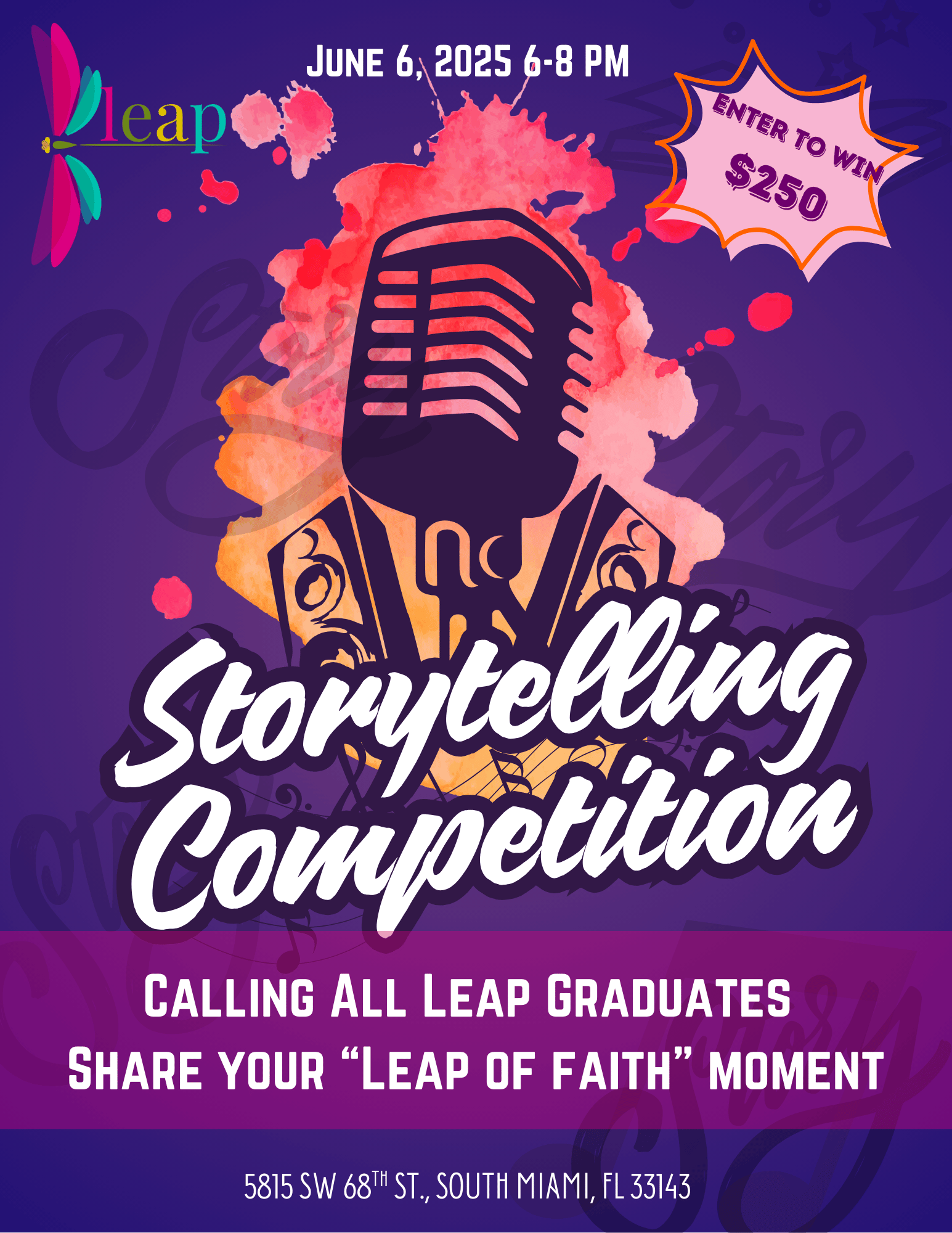LEAP Storytelling Contest: “Leap of Faith”
Inspired by NPR’s The Moth podcast, this contest invites LEAP graduates to share their personal stories of transformation, resilience, and hope.
Theme: “Leap of Faith”
Graduates, this competition is a chance to share a meaningful chapter of your life, something real you’ve lived through, lost, learned, or gained. It’s your story, told in your voice. Somewhere along the way, if LEAP played a part, let that thread shine through. The goal is to offer guests at the Second Chance Gala a glimpse into the strength and transformation that’s possible when we take a “LEAP” of faith.
Contest Details & Guidelines






Apply Here
Contest Format



Resources for Crafting Your Story

- Finding Your Voice – The Moth Link to video
- A Story of Redemption – The Moth Link to video
- Good vs Bad News – The Moth Link to video






